Navigating Uncertainty: Insights from Dr. Carla van Laar at the 2025 Creative Mental Health Forum and Collective Care Retreat
As we continue to navigate the complexities of mental health care, particularly within the framework of the National Disability Insurance Scheme (NDIS), the upcoming 2025 Creative Mental Health Forum and Collective Care Retreat offers a timely opportunity to reflect on the evolving landscape of creative and experiential therapies. Dr. Carla van Laar, a key speaker at this year’s forum, poses a crucial question: “What has been revealed over the past six months of uncertainty regarding access to Creative and Experiential Therapies in the NDIS?”
Dr. van Laar draws from her co-authored study, “Empowering Voices—Learning from NDIS Participants about the Value of Creative and Experiential Therapies: A Mixed Methods Analysis of Testimonials and Academic Literature.” This research, conducted collaboratively with colleagues Anja Zimmermann, Alexandra Bloch-Atefi, and Jeremy Grace, sheds light on the profound impact of creative therapies on individuals navigating the NDIS, especially during a time marked by uncertainty and change.
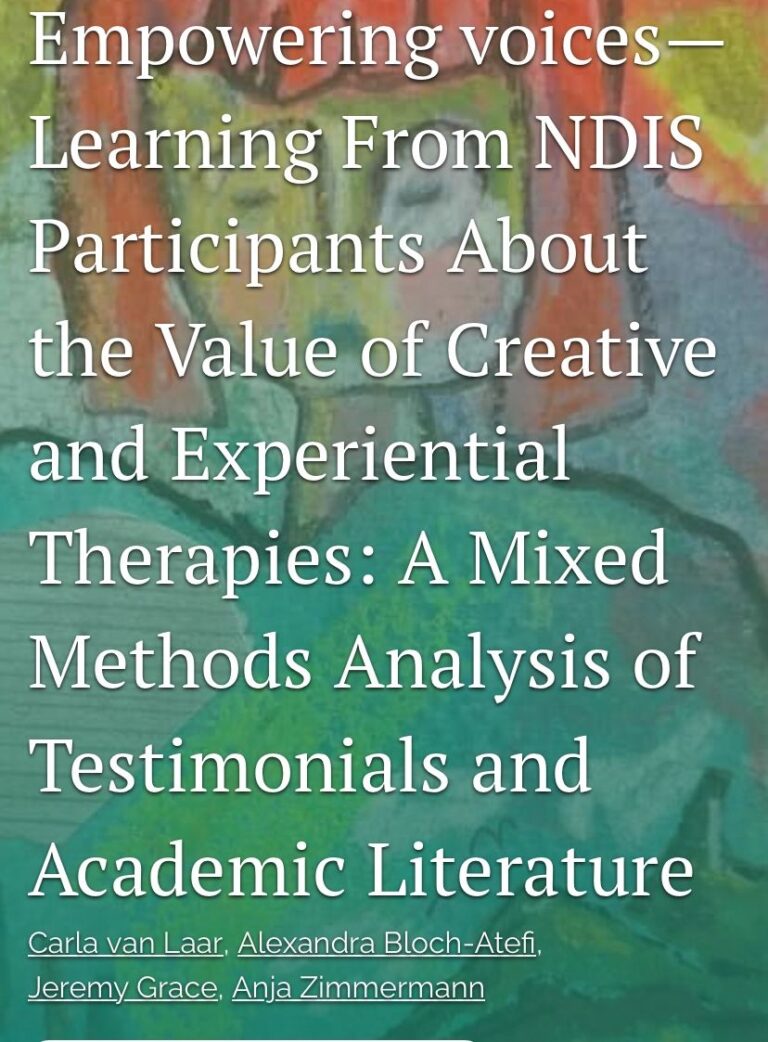
Image: The Empowering Voices Study was published in PACJA on 1st February 2025.
Reflecting on Uncertainty
The past six months have seen significant upheaval regarding the accessibility of creative and experiential therapies under the NDIS. Dr. van Laar reflects on how this uncertainty compelled stakeholders to take a closer look at existing evidence, rallying together to defend the validity and importance of their profession. The voices of NDIS participants emerged as a powerful narrative, revealing critical insights into what truly matters to disabled individuals when it comes to therapeutic support.
Testimonials from participants illuminate themes of choice and agency—essential elements that enable individuals to feel understood and valued by both policymakers and therapists. These real-life accounts emphasise the importance of therapeutic supports in fostering engagement in everyday life, showcasing how creative therapies can be life-changing, life-saving, transformative, accessible, and empowering.
Learning from Evidence
The uncertainty surrounding NDIS access also prompted a thorough examination of the literature related to creative and experiential therapies. Dr. van Laar highlights the robust evidence base that supports the efficacy of these therapies across various domains, including cognitive function, physical capacity, psychosocial wellbeing, communication skills, emotional health, and community participation. This body of research establishes creative and experiential therapies as a genuinely holistic approach to allied health care, underscoring the necessity for professionals within this field to possess the skills and capabilities required by Australia’s allied health workforce.
Emerging Themes and Challenges
During her presentation, Dr. van Laar will delve into several key themes that have emerged amidst the uncertainty:
Human Rights Perspective:
The United Nations Convention on the Rights of Persons with Disabilities (UNCRPD) emphasizes the importance of access to a choice of therapies as a fundamental human right. Australia’s commitment to upholding these standards through the NDIS is paramount in ensuring equitable access for all individuals.
Addressing Biases:
Recent events have brought to light ongoing biases against the arts sector and the creative therapy profession. Dr. van Laar discusses the need to confront and challenge these biases to foster greater understanding and recognition of the role of creative therapies in allied health care.
Regulation and Recognition:
There is an urgent need for clearer regulation and recognition of the creative and experiential therapies workforce. Establishing a framework for this workforce is essential to rebuild public confidence in the profession and ensure that practitioners are recognized for their contributions to allied health.
Professionalisation Journey:
Dr. van Laar reflects on the ongoing evolution of the professionalisation of creative and experiential therapies in Australia. She emphasises the importance of collaboration and collective action to move forward, reinforcing the need for continuous development and integration of creative therapies within the broader allied health landscape.
Moving Forward Together
As we gather at the 2025 Creative Mental Health Forum and Collective Care Retreat, Dr. Carla van Laar’s insights will undoubtedly spark important conversations about the future of creative and experiential therapies in Australia. By embracing the voices of NDIS participants and advocating for their rights, we can work together to address biases, enhance recognition, and pave the way for a more inclusive and effective allied health care system.
Join us in exploring these vital themes, and let’s collectively empower voices while navigating the path forward in creative mental health care. Together, we can champion the transformative potential of creative therapies and ensure that every individual’s right to choice and agency is honoured and upheld.
Dr Carla van Laar is delighted to welcome colleagues to the 2025 Creative Mental Health Forum and Collective Care Retreat.
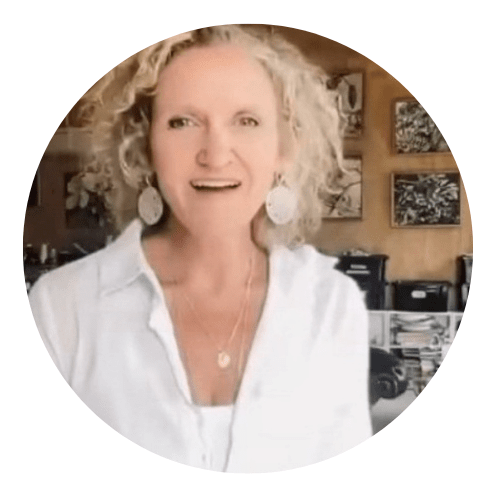
Image: Dr Carla in her studio.
Introducing Dr Carla van Laar
Hi, I’m Carla (she/her). Otherwise known as Dr Carla van Laar, Artist and Creative Arts Therapist. I Acknowledge the BoonWurrung People of the Kulin Nation where I am grateful every day to live and work. I pay my respects to the Boon Wurrung People, their Elders and Ancestors, and the spirits of this powerful Country that hold me in their healing energy and help guide me on a daily basis.
Let me begin by positioning myself as a white cishet woman, a descendant of English colonisers and Dutch post-war migrants, a person who has many privileges including sight, hearing and mobility, education, now living in a safe home in a caring relationship with my partner.
I am also a mother of two, with lived experience of maternal bereavement, carer of a child with disability and life-limiting illness, a survivor of childhood trauma and family violence, an early school leaver, person who has experienced homelessness, divorced single parent for 15 years, and a person who has never identified as neurotypical, even before that word came into use.
I like to think the intersections of my privileges and experiences of social injustice contribute to my capacity for compassion, and give me energy to use my voice for things I feel strongly about.
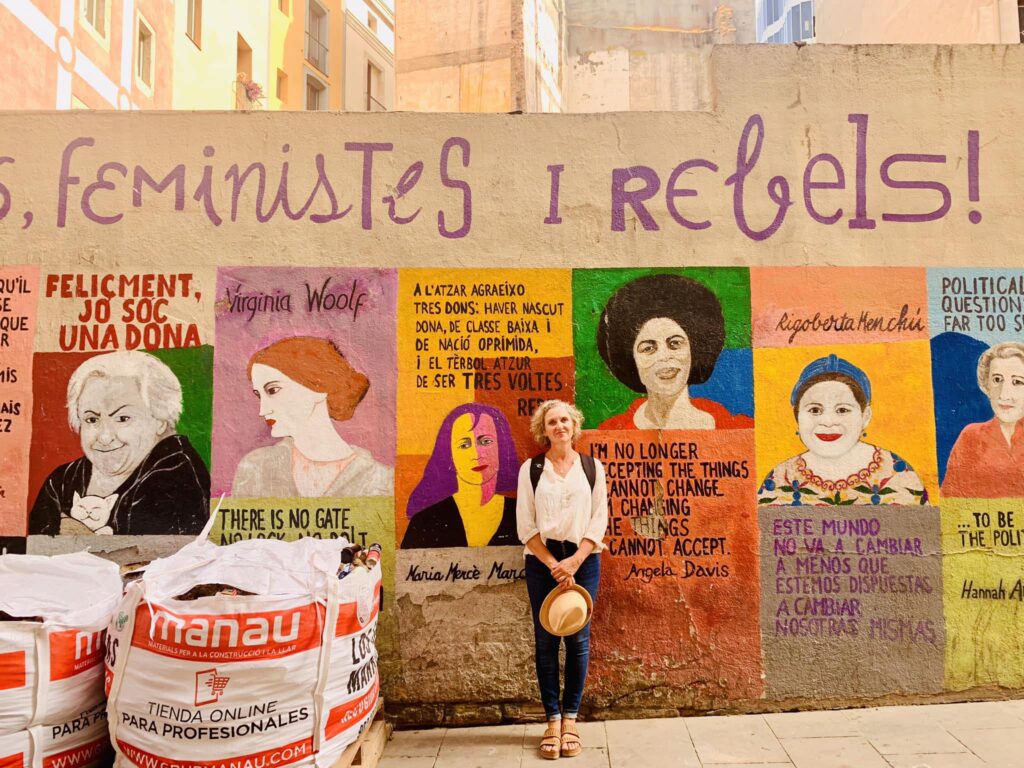
Image: Dr Carla in front of a street art mural during her holiday in Barcelona in 2024. She is standing beside the painted words that are a quote attributed to Angela Davis: “I’m no longer accepting the things I cannot change. I’m changing the things I cannot accept”.
Join us for the fifth annual Creative Mental Health Forum. 2nd – 5th May 2025.
Boon Wurrung Country: Inverloch, Victoria, Australia.
An immersive professional development event for allied health professionals, educators and creative practitioners who are deeply interested in the new paradigm of creative mental health and wellbeing.
Join us for the fifth annual Creative Mental Health Forum.
2nd – 5th May 2025.

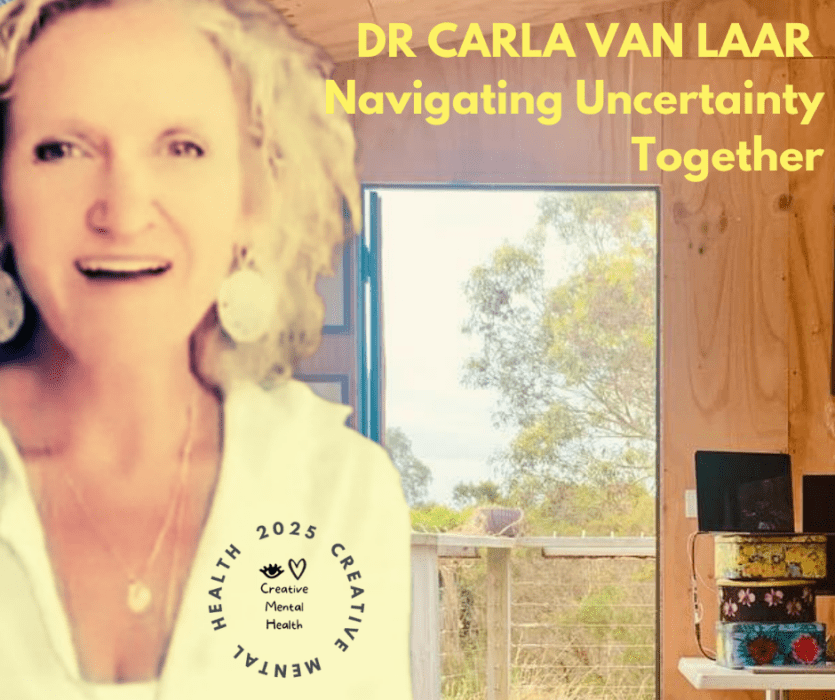
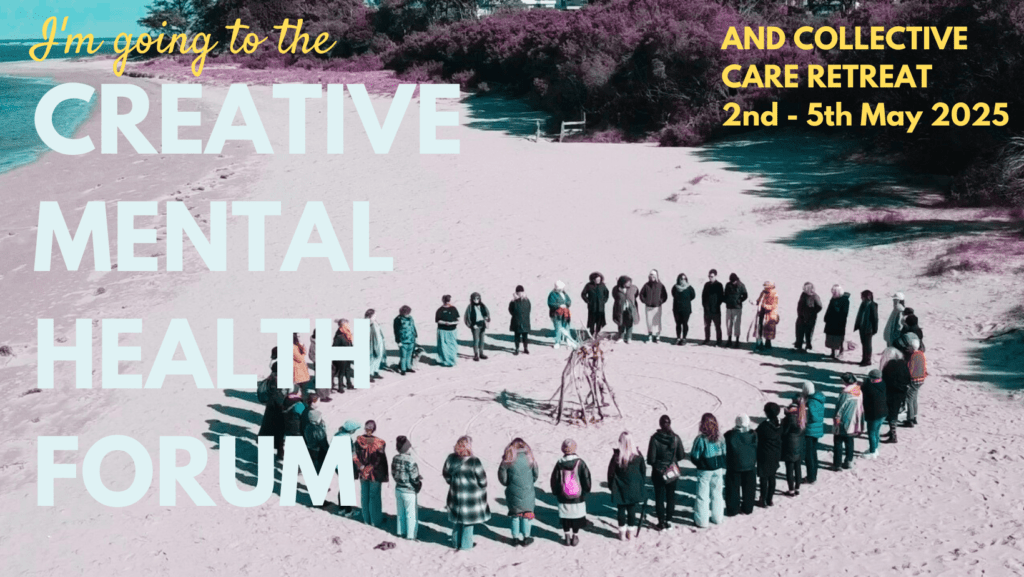
Leave a Reply